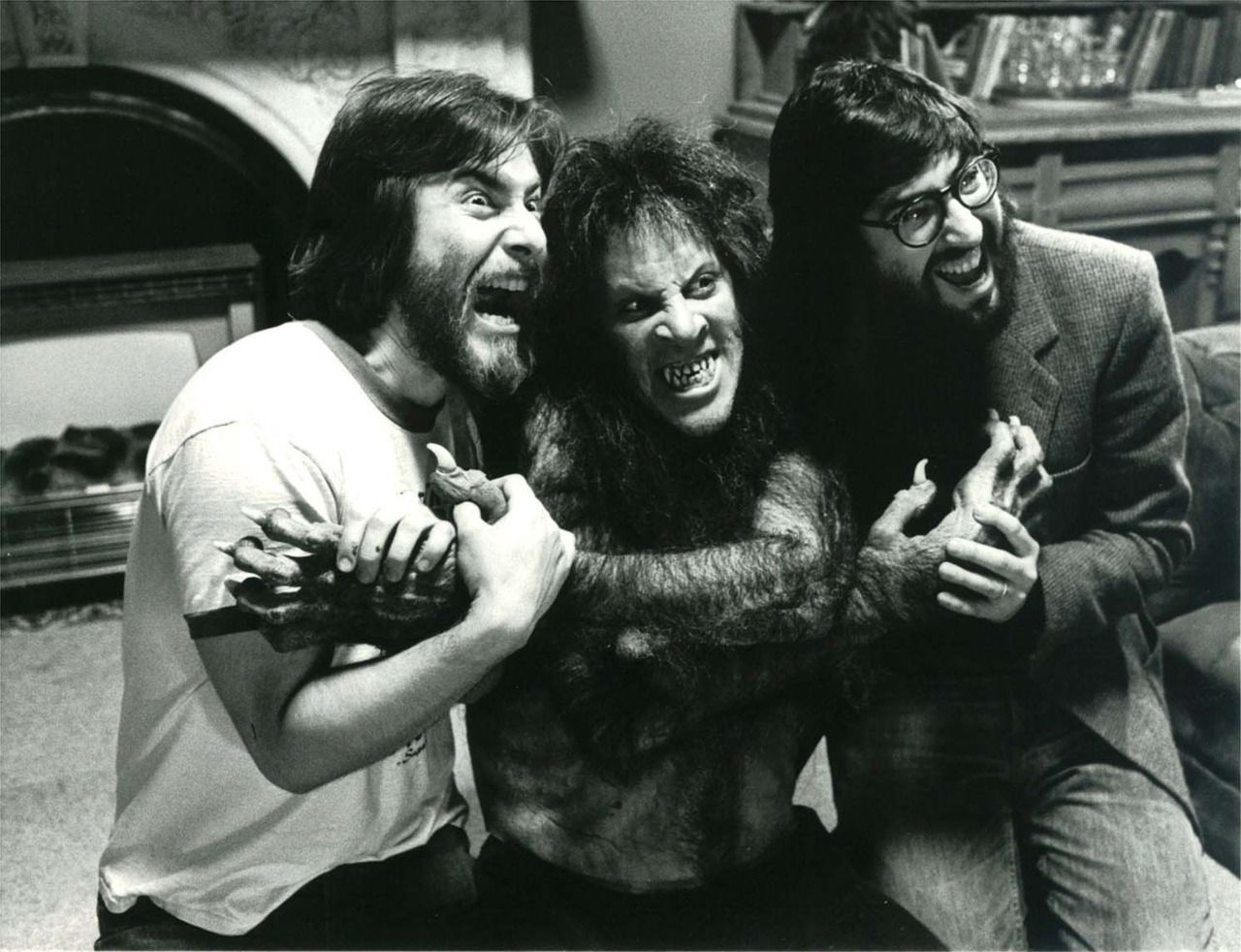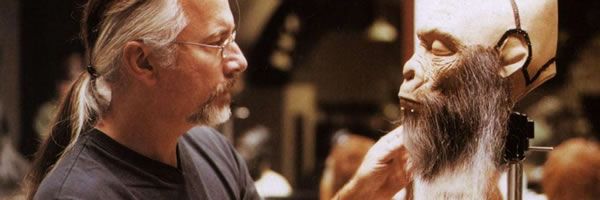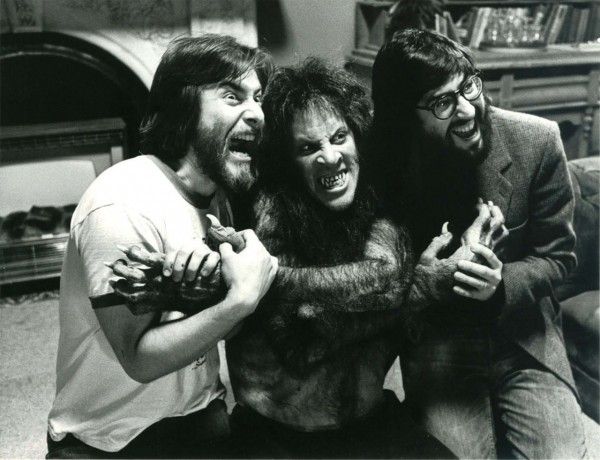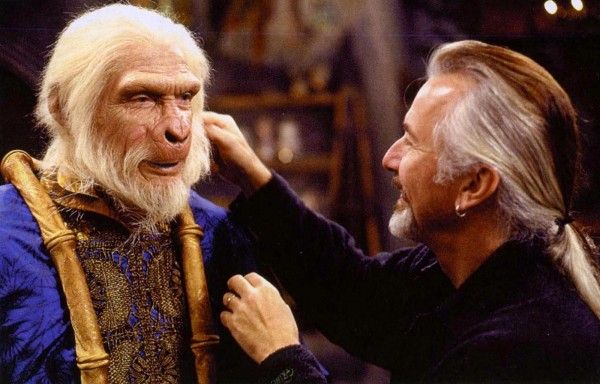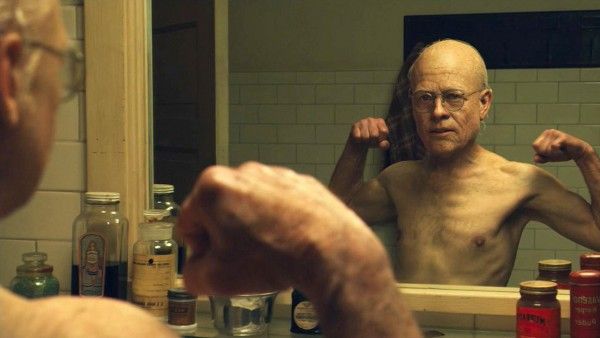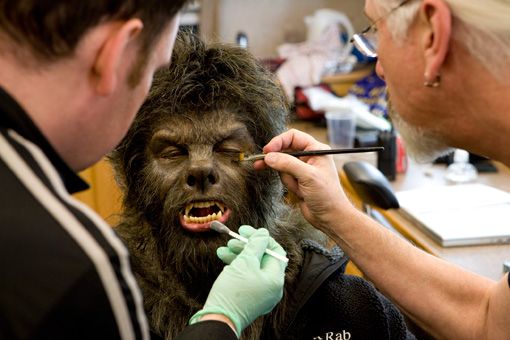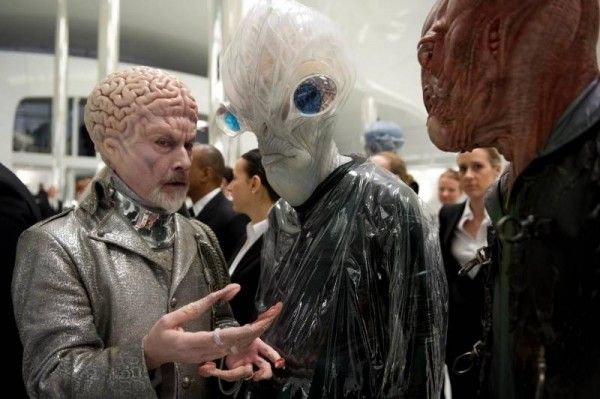Some sad, albeit not so surprising (in hindsight) news surfaced a few weeks ago when makeup effects legend Rick Baker announced his retirement. The genius behind the stunning effects of films like An American Werewolf in London, Harry and the Hendersons, and Men in Black cited the changing business model as the primary reason for his decision to step back, saying studios wanted “cheap and fast” over quality work, which fueled his frustration.
Losing Baker to the flood of CG-filled blockbusters is a depressing thought—his magic was a vital reason why the various films he contributed to worked so well. And the current moviegoing landscape is so saturated with CG effects that the wonder and awe of seeing something amazing yet totally believable onscreen is nearly gone. At this point, we’ve witnessed so many big cities destroyed so many different ways in the movies that it’s no longer a shocking or terrifying sight to see. It’s commonplace and, well, boring.
Baker recently spoke with Vice in anticipation of his upcoming auction, and he touched on the CG-heavy focus in blockbuster filmmaking these days:
“I have the hardest time going to movies now and caring about stuff. I'm an effects nerd, that's the kind of stuff that got me into this, and I watch films and I'm like, Why do I not care? Why am I just so bored? That's one of the downfalls of the CGI stuff. You can do anything. But does it make it better? I don't necessarily think so.”
Baker did single out one recent film that got him excited: Mad Max: Fury Road:
“There seems to be a lot of CGI backlash, and [talk that] they're going to bring back practical effects. But it's not happening that much. I loved Mad Max: Fury Road, [seeing] a 70-year-old director kicking every young punk's ass. And the fact that there was so much practical stuff. It does give you a different kind of adrenaline rush.”
Regarding his retirement, Baker explained why the lack of focus on practical effects made it difficult to justify his minimal work on films:
“The whole business has changed. I had a 60,000 square foot studio, which was great for How the Grinch Stole Christmas and Planet of the Apes. But it's not great for making a nose for somebody. And I've had that. I had one project where I had a guy making some teeth, in this 60,000 square foot building, by himself, in summer. My air conditioning bill was more than I was getting paid to make the teeth. So it just became time. Those big jobs don't exist anymore. As a young man, when I finally started meeting some people in the industry, I met a lot of bitter people, and a lot of crabby old guys, and I thought, 'How can you be like that? You're in this amazing industry doing these cool things.' And I didn't want to become that.”
Indeed, when announcing his retirement Baker cited his small workload on the otherwise CG-heavy Maleficent as a disappointing experience. But Baker isn’t wholly opposed to CGI. In fact, he revealed in the interview that he did some crucial work on David Fincher’s CG-intensive The Curious Case of Benjamin Button:
“When CG first became popular, we instantly became dinosaurs. But what happened was [the studios] started coming around, realizing that we actually had a skill set. I was brought in to do some damage control on The Curious Case of Benjamin Button. I said I would do it, but I didn't really want credit, because they wanted to do this CG head. They said, 'You can model this stuff in the real world better than we can on the computer.' So we actually modeled and made real, completely finished, silicone heads that they scanned to make their computer model from.”
Baker went on to stress the invaluable experience of having a real actor in real makeup:
“When you have a good actor, in a good makeup, and he's been sitting in the makeup chair looking at himself in the mirror, seeing himself become something else, and then he walks onto a set and he knows where he is, he knows what he looks like, he gives a performance that he's never going to give on a motion-capture stage.”
While there will (hopefully) always be a place for practical effects in the feature film world, it’s a shame that the profession has been minimized so significantly that we’re losing a legend like Rick Baker. For the filmmakers that will dominate the marketplace 10 or 20 years from now, will makeup and practical be a foreign concept to them? Is CG wizardry the only magic effect they’ll have to look up to as a primary influence? People like George Miller and J.J. Abrams give us hope that the artform won’t completely die out, but there’s no denying the fact that the level of wonder and appreciation for makeup and practical effects is nowhere near what it once was.

